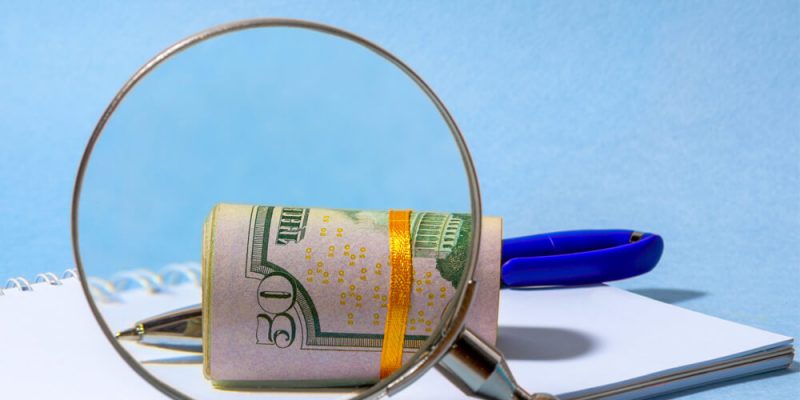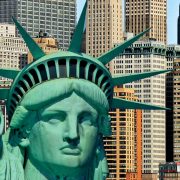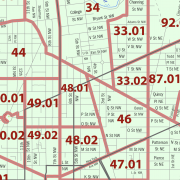Those who decide to make an EB-5 investment must satisfy a number of requirements to complete their EB-5 journey and receive a U.S. green card. Of all the requirements of the EB-5 Immigrant Investor Program, the source-of-funds requirement can be the most challenging to meet. This stipulation requires EB-5 investors to document the lawful sources of all of their EB5 investment capital on their I-526 petition. Investors may derive their capital from a wide variety of funds, as long as they can be traced back to legal sources. Finding the necessary documentation to meet this requirement can be quite challenging and time-consuming for the investor.
Matters may be even more complicated for certain investors depending on which country they are from. Many countries in Asia, the Middle East, and Africa have restrictions on transferring U.S. dollars in their jurisdiction, and some have gone as far as to outlaw purchasing U.S. dollars. As of November 2020, China, Vietnam, and India—the top three countries in terms of EB-5 demand—all enforce certain restrictions on the transfer of U.S. dollars. Because of this, investors from these countries face an even larger obstacle when attempting to document the lawful sources of their EB-5 investment capital.
EB-5 Currency Swaps
Due to the restrictions in certain foreign countries regarding U.S. currency, EB-5 investors from those countries began using “currency swaps” to invest their capital in an EB-5 project despite the restrictions. A “currency swap” is a process that allows an EB-5 investor to transfer the equivalent of $1.8 million or $900,000 in their country’s currency to a third-party intermediary. After receiving the funds, the intermediary then transfers the amount in U.S. dollars to the escrow or other designated account of the EB-5 project. This process has become more complicated as of 2016, when United States Citizenship and Immigration Services (USCIS) started issuing requests for evidence (RFEs) that required EB-5 investors to document the lawful sources of the intermediary’s U.S. dollars. This further complicates the process of an EB-5 investment for individuals in specific countries. Depending on the type of currency swap, the process of documenting the source of funds can be extremely difficult and time-consuming. The three categories of currency swaps are as follows:
- A currency swap through a known individual, such as a relative or friend of the investor
- A currency swap through a company that acts as a licensed money exchanger
- A currency swap with an unlicensed money exchanger, typically an individual or company that the investor does not personally know, who agrees to exchange the capital for a fee
Currency Swaps Through a Friend or Relative
EB-5 investors from China typically engage in currency swaps through a friend or relative who has U.S. dollars outside of China. The investor pays the individual the amount in yuan, and then the individual transfers the equivalent amount in U.S. dollars to the escrow account of the EB-5 project. Should the investor receive an RFE, they usually have to prove how the third-party earned their U.S. dollars in their home country or how the money was earned and then transferred to the other country.
As long as the individual involved with the currency swap agrees to cooperate, the investor’s I-526 petition will most likely be approved. Typically, employment records, tax returns, and bank statements can be used to satisfy USCIS’s request, but it is important to carefully read the RFE and determine exactly what information is being requested. If the friend or relative chooses not to provide any documentation, the EB-5 investor may be denied.
Currency Swaps Through a Company or Licensed Money Exchanger
Another common way that EB-5 investors engage in currency swaps is through a licensed money exchanger. If an investor uses a licensed money exchanger, it is fairly simple to demonstrate the legal sources of the funds. Normally, proof of the company’s license to operate as a currency exchange agent is sufficient evidence for USCIS. In Hong Kong, Singapore, Australia, and other countries, there are strict anti-money laundering laws for money exchangers, so a valid license normally satisfies the source-of-funds requirement.
If an EB-5 investor who engaged in this type of currency swap receives an RFE, they should provide the contract of their deal, the license of the money exchanger, proof of the wire transfer in the local currency to the exchange house, and proof of the wire transfer from the exchange house to the escrow account in U.S. dollars.
Currency Swaps Through an Unlicensed Money Exchanger or Unknown Third Party
The third type of currency swap presents the biggest challenge when trying to demonstrate the lawful sources of the funds. In this type of currency swap, an investor contracts an unknown and unlicensed individual or company to conduct the exchange for a fee. For EB-5 investors from some countries in the Middle East, Asia, and Africa, there are no operating licensed money exchangers, and this route is their only way to transfer their capital to U.S. dollars.
Even though these third-party exchangers are not licensed, some may have a business license that allows them to act as a currency exchanger. In some cases, providing such a business license is enough to satisfy USCIS. Business can also provide business records that demonstrate how the lawful U.S. currency was obtained. Both of these options may help satisfy the source-of-funds requirement, allowing the EB-5 investor’s application to be approved.
If neither of these two options are possible, it can potentially ruin the EB-5 investor’s chance at an EB-5 visa. For this reason, it is crucial that anyone planning an EB-5 investment conduct thorough research on their country’s restrictions on U.S. currency and their options for currency swaps. They should carefully plan how they will acquire U.S. dollars for their EB5 investment so that they do not potentially jeopardize their future in the United States.







